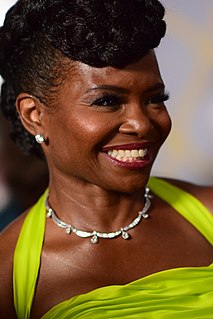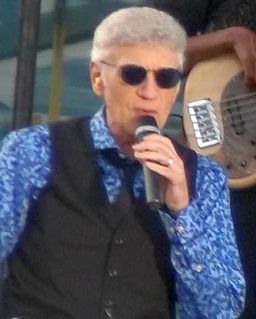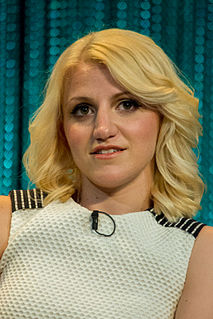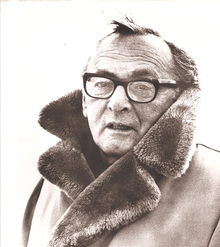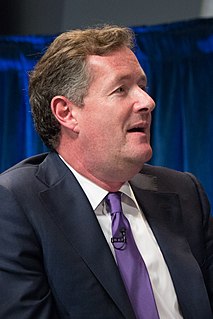A Quote by Kenneth Cranham
The thing about theatre is that when it is actually occurring, when you have the audience on your side, you absolutely think you can will them to do anything. It's exhilarating.
Related Quotes
When someone says "that resonates with me" what they are saying is "I agree with you" or "I align with you." Once your ideas resonate with an audience, they will change. But, the only way to have true resonance is to understand the ones with whom you are trying to resonate. You need to spend time thinking about your audience. What unites them, what incites them? Think about your audience and what's on their mind before you begin building your presentation. It will help you identify beliefs and behavior in your audience that you can connect with. Resonate with.
I don't think about the audience, I don't think about what makes them happy, because there's no way for me to know. To try to think of what makes for entertainment is a very Japanese thing. The people who think like this are old-fashioned. They think of the audience as a mass, but in fact every person in the audience is different. So entertainment for everyone doesn't exist
The big difference I think between tv and stage is definitely the immediate buzz that you get. And that's not just as an actor, as an audience member you're getting the chance to have this kind of two-way process where the actors and the audience are experiencing the same thing. With tv you often have to wait months and months down the line to actually get the pay-off. Whereas with theatre it's a very immediate thing.
At the Neighborhood Playhouse School of Theatre, Sanford Meisner said, 'When you go into the professional world, at a stock theatre somewhere, backstage, you will meet an older actor, someone who has been around awhile. He will tell you tales and anecdotes, about life in the theatre. He will speak to you about your performance and the performances of others, and he will generalize to you, based on his experience and his intuitions, about the laws of the stage. Ignore this man!'
On camera, the audience can see your eyes close up - they can see behind your eyes - and when you're on stage, you need to make sure that the person sitting in the back row can feel what's happening behind your eyes, even if they can't see them. Having a live audience is exhilarating and exciting all on its own, but you know, it is quite different.
. . . I felt that making her one-dimensional would be an insult to the audience, and also not as interesting. All destructive people have an inner side to them, and the more three-dimentional your characters are on screen the more compassion you can open up in an audience . . .. To me, that involves the audience more, it stimulates them and asks more of them.
Life beats down and crushes our souls and theatre reminds us that we have one. At least the type of theatre that I'm interested in; that is, theatre that moves an audience. You have the opportunity to literally impact the lives of people if they work on material that has integrity. But today, most actors simply want to be famous. Well, being an actor was never supposed to be about fame and money. Being an actor is a religious calling because you've been given the ability, the gift to inspire humanity. Think about that on the way to your soap opera audition.
I did spend about 5 years in the Griffin Theatre Company in 1978 actually , and worked therefore about 5 years on a voluntary basis. This was very much as a amateur, doing things like mopping the floor, handling props, setting up scenery, etc. I never acted, and don't think I'm an actor, but those years in the theatre taught me a lot about professional theatre.


